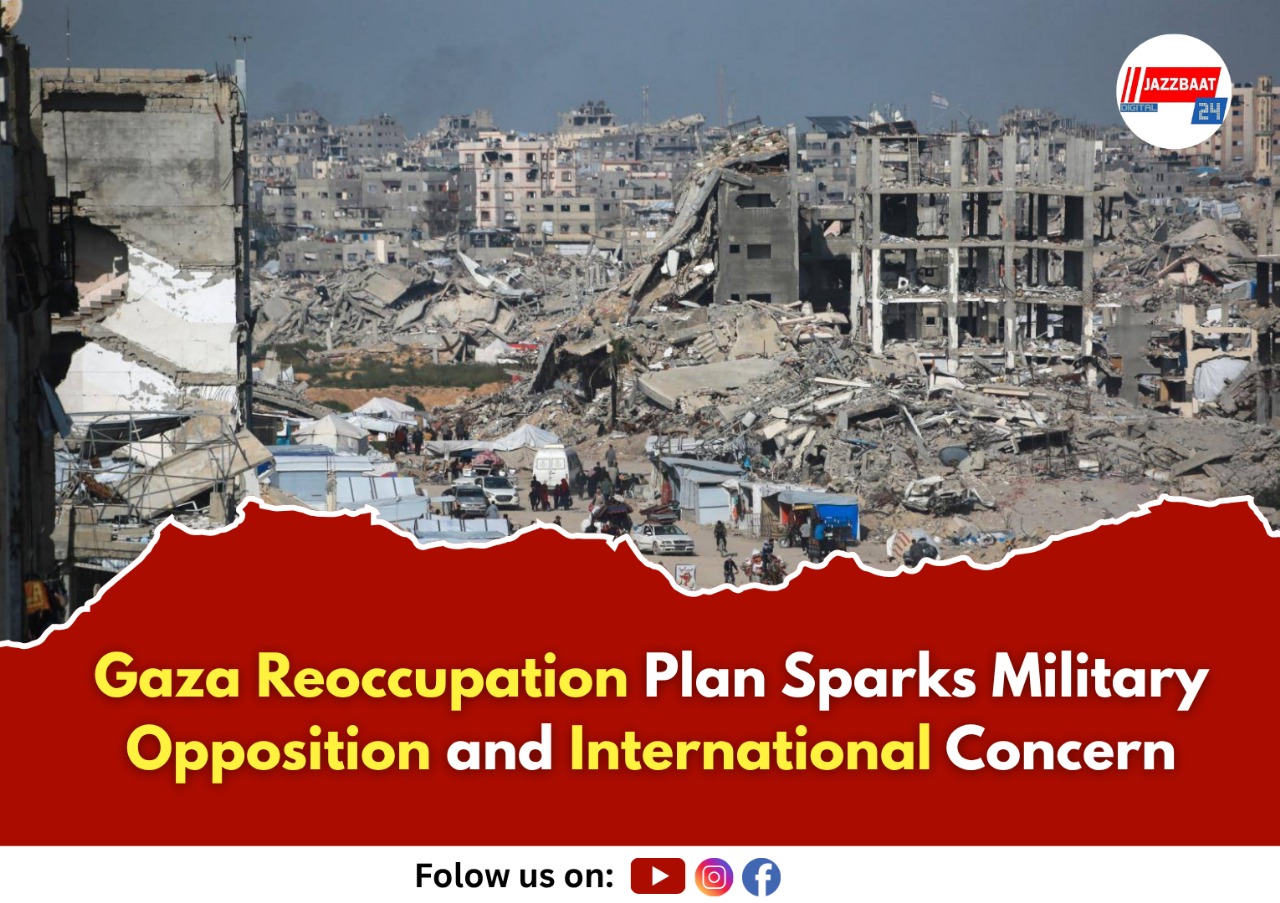
Netanyahu faces pushback from IDF leadership over reported plan to fully occupy Palestinian territory.
Israeli Prime Minister Benjamin Netanyahu's reported decision to pursue complete occupation of the Gaza Strip has triggered fierce opposition from military leadership and drawn warnings of "catastrophic consequences" from international observers.
According to multiple Israeli media reports, Netanyahu clashed with IDF Chief of Staff Lt. Gen. Eyal Zamir during a tense security meeting this week. Zamir reportedly warned that full occupation would amount to "walking into a trap" that could endanger the lives of remaining hostages and further exhaust Israeli forces.
The confrontation highlights deepening divisions between Israel's political leadership and military commanders over the direction of the 15-month war. Israel's military currently controls approximately 75% of Gaza, but the new plan would see forces move into densely populated areas where more than two million Palestinians are concentrated.
"The complete conquest of the Gaza Strip was tantamount to walking into a trap and would endanger the lives of the hostages and the troops," Zamir told the meeting, according to Israeli media reports.
The proposal still requires approval from Israel's security cabinet, which is scheduled to meet Thursday. Defense Minister Israel Katz has indicated the military will follow government orders despite leadership objections, stating that while commanders have the "right and duty to express their position," the IDF will ultimately carry out political decisions "with determination and professionalism."
International reaction has been swift and concerned. At a UN Security Council meeting, Assistant Secretary General Miroslav Jenča warned that expanding military operations would be "deeply alarming" and could endanger more Palestinian lives as well as Israeli hostages. Under international law, he emphasized, Gaza "is and must remain an integral part of a future Palestinian state."
The timing of the occupation plan comes as ceasefire negotiations have stalled and Hamas released disturbing propaganda videos showing emaciated Israeli hostages. Families of the approximately 20 hostages believed to still be alive have reacted angrily, arguing that military pressure has failed to secure their loved ones' release.
US President Donald Trump has taken a hands-off approach, telling reporters that the question of Gaza occupation is "pretty much up to Israel" while indicating his administration's focus remains on food distribution in the territory.
The humanitarian crisis in Gaza continues to worsen, with the Hamas-run health ministry reporting 193 deaths from malnutrition, including 96 children. UN figures indicate more than 1,300 Palestinians have been killed seeking food since late May.
Critics suggest Netanyahu may be prolonging the conflict to satisfy far-right coalition partners who have openly advocated for Gaza's annexation and resettlement with Jewish communities. Polls show most Israelis favor a deal with Hamas to end the war.
The security cabinet meeting Thursday will determine whether Netanyahu can overcome military opposition and international pressure to implement what would represent a dramatic escalation in the ongoing conflict.